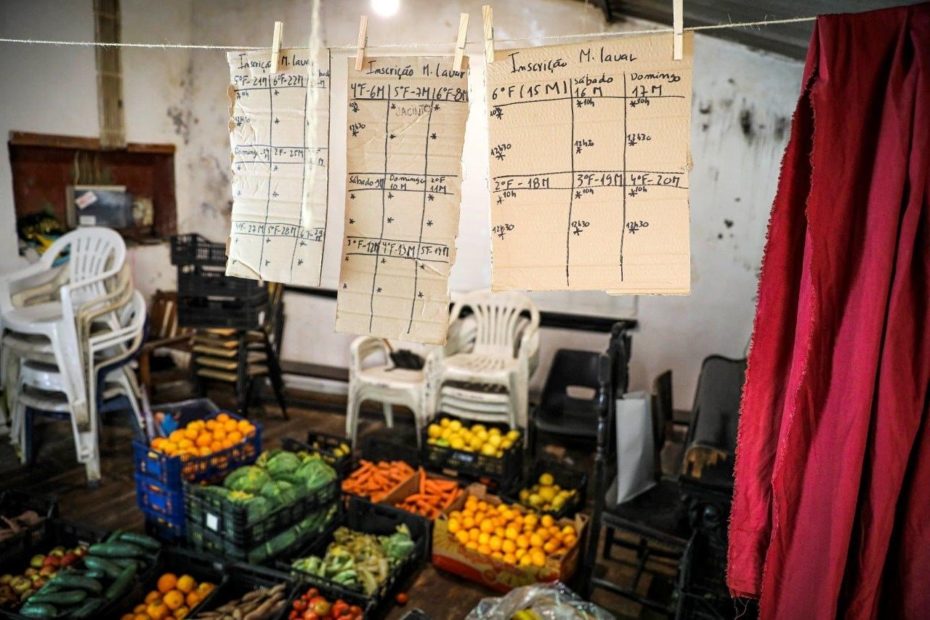Spotting from different contexts in Southern Europe, it is clear that we are “not all in the same boat” in the present pandemic context. Beyond the COVID-19 epidemiological crisis and its influence in physical and mental health, we observe the loss of jobs, its impact mainly in lower income classes, heightening gender roles inequity, the added risk and closure of confined contexts (particularly elder homes, prisons and refugee camps), the aggravation of physical isolation with territorial dispersion and social inequalities at the local scale.
This situation hit Southern European cities like Lisbon, Barcelona and Rome, which were at the centre of the first international edition of “Café com Luta” — Local powers and the pandemic in Southern Europe, held on the 28th May 2020 and organized by the Friedrich Ebert Foundation with the support of ICS’s Urban Transitions Hub and the association Transparent International in Portugal. The “Café com Luta” [Coffee with Fight] events aim to focus on how to reclaim the cities and highlight the role of social movements in these fights, parting from the Lisbon Metropolitan Area. This edition of the debate was fully held in the digital sphere and broadcasted live in social media, counting with the participation of Amedeo Ciaccheri, president of the 8th District at Rome; Elena Tarifa, from Barcelona’s local administration, coordinator of the International Commission at Barcelona en Comú; Rogério Roque Amaro (ISCTE-IUL) and Bárbara Ferreira (ISEG-UL) from the Portuguese academia, engaged in Community Groups action-research in Lisbon. With diverse levels of action and analysis from each of the speakers — city administration in Barcelona, district administration in Rome, and informal neighbourhood/ community groups in Lisbon –, different issues arose regarding the challenges and responses to the 2020 pandemic crisis.
Social services and emergency aid
Basic needs first — life is at the centre and no one should be left behind. If social services work in a regular basis, now their need has highly increased and is expected to rise even further, thus requiring special emergency aid in areas such as food and housing. In Barcelona, the pressure of “stay at home”-related needs has been evident in the last months, namely in nursing homes for the elder and support structures for homeless people. In Rome, the extended loss of jobs heightened social and economic inequalities in the city, and one of the key responses by the local community was the creation of a networked food hub. Lisbon added local actions of response to particularly vulnerable situations such as those of recently evicted families, actions developed by groups that have long-standing educational activities with those local communities. These are examples of important emergency solutions that arose from community-level groups and not from public entities.
Supporting community self-organization
Indeed, the need to support community self-organization has been relevant to all speakers. From the realm of local administration, Elena Tarifa considered the importance of “learning by doing” and supporting the local action of solidarity networks that relieve people at the neighbourhood level, which besides the previously referred aims of action also provide legal support to migrants, for example. Amedeo Ciaccheri added the need to unfocus the sovereignty of the municipality and focus on the real actors of the community, namely associations, churches, grassroot and informal groups, whose response has been very strong. Roque Amaro and Bárbara Ferreira referred that community groups, existing in Portugal at least since the early 1990’s, have grown in periods of crisis — as well, in Barcelona this type of networks further involved new people during the COVID-19 pandemic. In these bottom-up groups (not initiative of local powers) local public and private institutions deal with local communities to identify their problems and find responses, in a kind of a “new commons” experience of participatory democracy. Such groups had an important role before and during this crisis: by connecting the information and needed responses in local institutions (schools, health centres, local authorities, etc.) for problems such as unemployment, domestic violence and food needs; some groups met virtually to decide new collective responses, whenever possible with the participation of neighbours, to answer to new issues (increased distribution of food, information, helping children in the new situation of online schooling when families may not have all the support and equipment for it); engaging in social emergency networks, with other groups and the municipality, to address the worst situations in some neighbourhoods and collectively reflect on the needed responses.
Collaboration and local action
These initiatives open a new window for a co-management model, with a perceivable sense of urgency for greater participation and residents’ power for decision-making and policy-making. A certain tension between participatory democracy and representative democracy is identifiable; yet, participation is retained a key in fighting the challenges of upcoming times. In line with this approach are the alliances between local administrations and local movements, considering the importance of the latters’ identification of areas in need of investment. In the case of Barcelona, even if digital social networks might have opened some new windows, this collaboration and participation found some obstacles as the pandemic threatened the traditional proximity of action of the municipality (e.g. door to door actions and assemblies). The overall COVID-19 conjuncture reinforced these obstacles, considering that in a context of state of alarm or calamity of the whole national state, political power gets more centralized and a lower space is given to local power. In the remaining margins of much needed local action, the work of (not exclusively pandemic-related) political structures at the neighbourhood level can be strengthened along with its networks with local solidarity entities. Considering the Roman example, there is a need to reinvent the city in this time, and for doing so it is necessary to work together: giving strength, resources and opportunities for self-government in the city, and at the same time rebuilding the image and the perspective of the city internally and externally.
Review article by Inês Vieira (ines.vieira@fcsh.unl.pt)
Photo: food and cleaning support initiative in Lisbon (Regueirão dos Anjos) by Daniel Rocha, 14/05/2020
